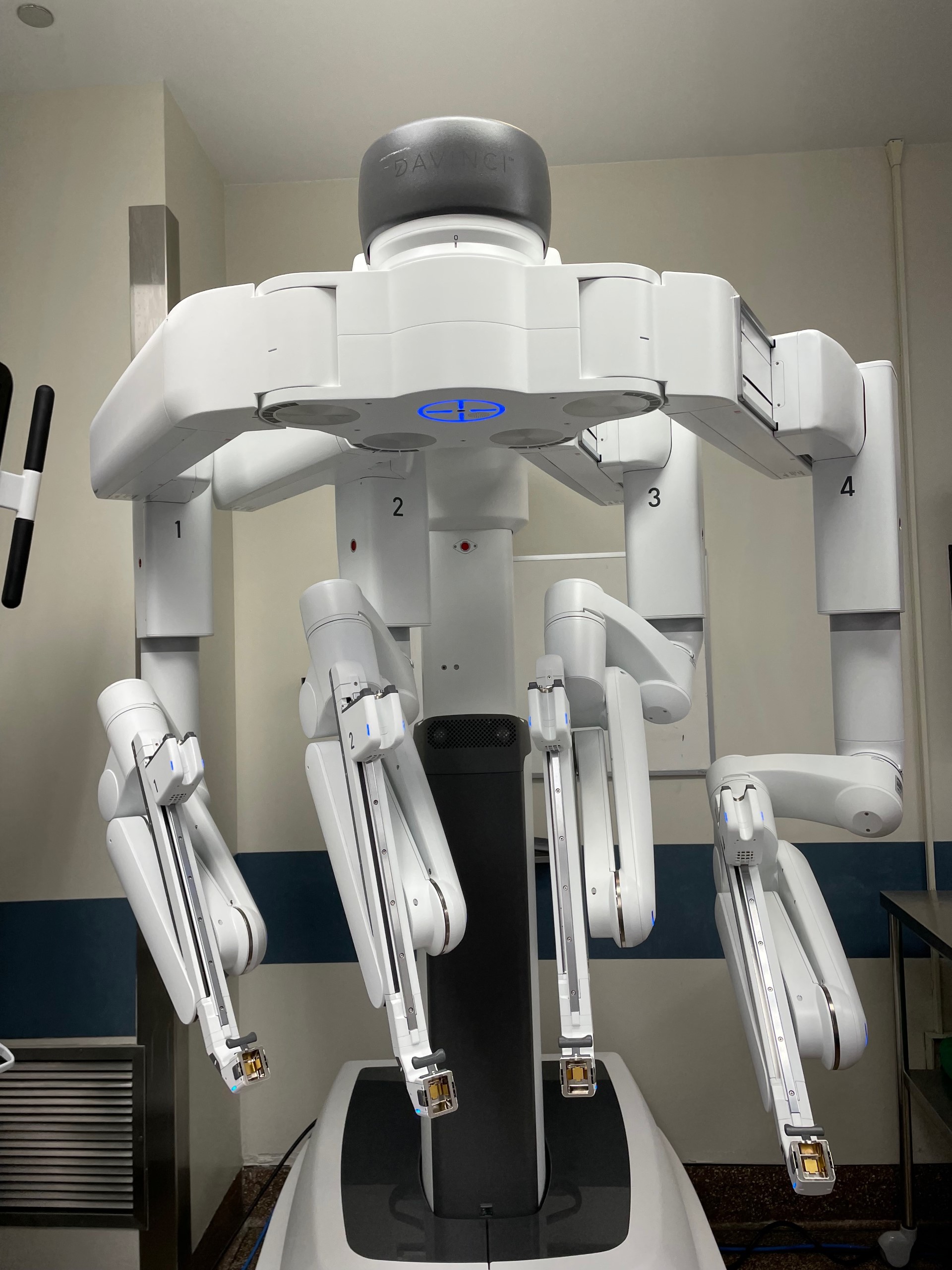(From Blanchard Valley Health System)
Blanchard Valley Health System (BVHS) has acquired two new da Vinci Xi surgical robots (pictured below) as part of its continued commitment to offering state-of-the-art technology to provide quality healthcare.
BVHS now has a total of four Xi surgical robots. One of the new robots is at Blanchard Valley Hospital, while the other is at Bluffton Hospital. They replaced da Vinci X robots previously at each site.
“An Xi robot allows the surgeon to see throughout the abdomen in all directions, without stopping to move the robot or the instruments to a new position,” said Kristie Jolliff, RN, surgery operations manager. “This means surgeries can be performed more efficiently, which is better for the patient as they have to spend less time under anesthesia.”
The robots are used to perform procedures in general surgery, gynecology, and urology. Jolliff said they can be used for a wide variety of procedures, including removal of the gallbladder, appendix, prostate, or kidney. They are often used in hysterectomies, among other gynecological procedures. Some of the most common general procedures are hernia repairs and colon resections.
BVHS has had a robotic surgery program since 2010.
“Robotic surgery, in general, allows for more efficient procedures, which can reduce complications for patients,” said Trevor Schmiedebusch, RN, director of perioperative services. “It also offers better ergonomics for the surgeons, who sit at a console controlling the robots, rather than spending many hours standing. Each new generation of robots further builds upon these opportunities to make the experience go more smoothly, improving safety and efficiency.”
For example, the da Vinci Xi robots magnify an item to 12 times its actual size, meaning a surgeon looking at even the smallest blood vessel can see it very clearly.
The robot itself can set its arms to be in the best position. Additionally, the software will automatically update as new developments improve the robots’ capabilities.
“BVHS already has surgical beds that themselves include technology that works with the robots so that the beds can adjust as the robotic arms move,” Schmiedebusch said. “Having four Xi robots available means we are offering the latest and best technology. It’s an indication of how BVHS is continually investing to ensure we are providing our patients with the best care.”
For more information about surgery at BVHS, please visit https://www.bvhealthsystem.org/services/surgery/surgery

